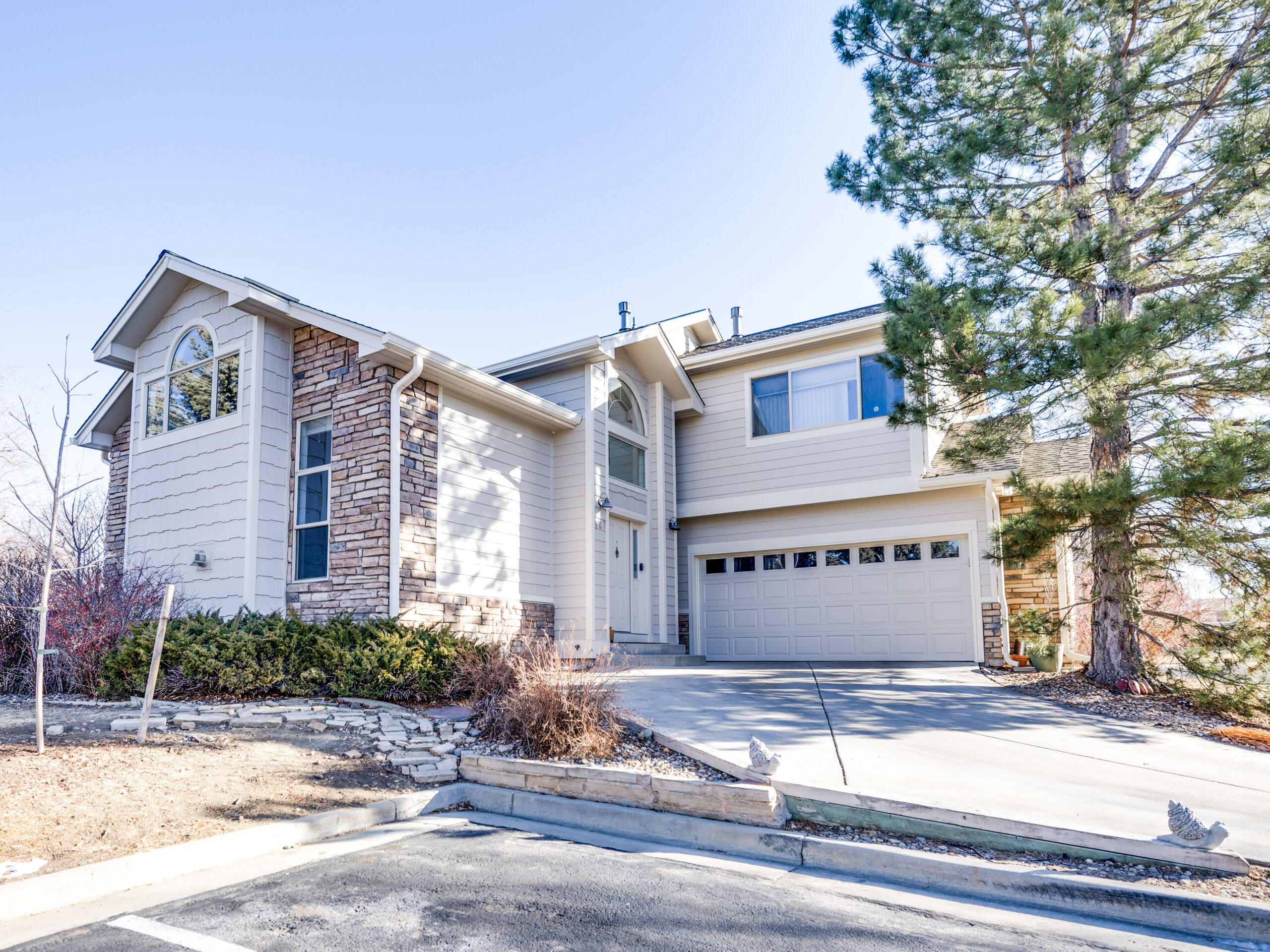Economic Growth AND Rising Foreclosures?
by Osman Parvez

Rob Reuteman, business editor of the Rocky Mountain News gets it right with an editorial from this weekend. The situation is driven by a proliferation of dodgy mortgages and unreputable lenders. Although pending legislation may soon create much needed changes, Colorado is currently one of only two states that doesn’t regulate mortgage brokers (Alaska is the other). It’s also on the FBI’s list of Hot Spots for mortgage fraud.
This isn’t just a problem for buyers who get in over their heads. If you’re a seller, exercise caution when you see an offer with a “pre-approval letter” from an unknown lender. Read the terms of the letter carefully and at a minimum, have you agent dig up some information about the firm. You may be excited to have an offer that’s close to your asking price, but the last thing you want to do is take the property off the market when there are signs the buyer won’t be able to qualify for the loan. Consider countering with an earlier lender approval date.
If you are the buyer, your agent should provide you with a list of good lenders (we generally refer our clients to three or four). Your CPA, attorney, or local real estate investment group like the Boulder County Real Estate Investors or the Colorado Association of Real Estate Investors can also be a good source of referrals.
Oh, and if what the mortgage broker says it sounds too good to be true? It probably is.
According to the FBI, the following are common mortgage fraud techniques.
- Backward Applications: After identifying a property to purchase, a borrower customizes his/her income to meet the loan criteria.
- Air Loans: These are non-existent property loans where there is usually no collateral. An example would be where a broker invents borrowers and properties, establishes accounts for payments and maintains custodial accounts for escrows. They may set up an office with a bank of telephones, each one used as the employer, appraiser, credit agency, etc. for verification purposes.
- Silent Seconds: The buyer of a property borrows the down payment from the seller through the issuance of a non-disclosed second mortgage. The primary lender believes the borrower has invested his own money in the down payment, when in fact, it is borrowed. The second mortgage may not be recorded to further conceal its status from the primary lender.
- Nominee Loans: The identity of the borrower is concealed through the use of a nominee who allows the borrower to use the nominee’s name and credit history to apply for a loan.
- Property Flips: Property is purchased, falsely appraised at a higher value, and then quickly sold. What makes property flipping illegal is that the appraisal information is fraudulent. The schemes typically involve fraudulent appraisals, doctored loan documents, and inflation of the buyer’s income.
- Foreclosure schemes: The subject identifies homeowners who are at risk of defaulting on loans or whose houses are already in foreclosure. Subjects mislead the homeowners into believing that they can save their homes in exchange for a transfer of the deed and up-front fees. The subject profits from these schemes by re-mortgaging the property or pocketing the fees paid by the homeowner.
- Equity Skimming: An investor may use a straw buyer, false income documents, and false credit reports to obtain a mortgage loan in the straw buyer’s name. Subsequent to closing, the straw buyer signs the property over to the investor in a quit claim deed which relinquishes all rights to the property and provides no guaranty to title. The investor does not make any mortgage payments and rents the property until foreclosure takes place several months later.
—-
Want to get blog updates via email? Click HERE.
Ready to buy or sell? Schedule an appointment or call 303.746.6896.
You can also like our Facebook page or follow us on Twitter.
As always, your referrals are deeply appreciated.
—
The ideas and strategies described in this blog are the opinion of the writer and subject to business, economic, and competitive uncertainties. We strongly recommend conducting rigorous due diligence and obtaining professional advice before buying or selling real estate.
Economic Growth AND Rising Foreclosures?
by Osman Parvez

Rob Reuteman, business editor of the Rocky Mountain News gets it right with an editorial from this weekend. The situation is driven by a proliferation of dodgy mortgages and unreputable lenders. Although pending legislation may soon create much needed changes, Colorado is currently one of only two states that doesn’t regulate mortgage brokers (Alaska is the other). It’s also on the FBI’s list of Hot Spots for mortgage fraud.
This isn’t just a problem for buyers who get in over their heads. If you’re a seller, exercise caution when you see an offer with a “pre-approval letter” from an unknown lender. Read the terms of the letter carefully and at a minimum, have you agent dig up some information about the firm. You may be excited to have an offer that’s close to your asking price, but the last thing you want to do is take the property off the market when there are signs the buyer won’t be able to qualify for the loan. Consider countering with an earlier lender approval date.
If you are the buyer, your agent should provide you with a list of good lenders (we generally refer our clients to three or four). Your CPA, attorney, or local real estate investment group like the Boulder County Real Estate Investors or the Colorado Association of Real Estate Investors can also be a good source of referrals.
Oh, and if what the mortgage broker says it sounds too good to be true? It probably is.
According to the FBI, the following are common mortgage fraud techniques.
- Backward Applications: After identifying a property to purchase, a borrower customizes his/her income to meet the loan criteria.
- Air Loans: These are non-existent property loans where there is usually no collateral. An example would be where a broker invents borrowers and properties, establishes accounts for payments and maintains custodial accounts for escrows. They may set up an office with a bank of telephones, each one used as the employer, appraiser, credit agency, etc. for verification purposes.
- Silent Seconds: The buyer of a property borrows the down payment from the seller through the issuance of a non-disclosed second mortgage. The primary lender believes the borrower has invested his own money in the down payment, when in fact, it is borrowed. The second mortgage may not be recorded to further conceal its status from the primary lender.
- Nominee Loans: The identity of the borrower is concealed through the use of a nominee who allows the borrower to use the nominee’s name and credit history to apply for a loan.
- Property Flips: Property is purchased, falsely appraised at a higher value, and then quickly sold. What makes property flipping illegal is that the appraisal information is fraudulent. The schemes typically involve fraudulent appraisals, doctored loan documents, and inflation of the buyer’s income.
- Foreclosure schemes: The subject identifies homeowners who are at risk of defaulting on loans or whose houses are already in foreclosure. Subjects mislead the homeowners into believing that they can save their homes in exchange for a transfer of the deed and up-front fees. The subject profits from these schemes by re-mortgaging the property or pocketing the fees paid by the homeowner.
- Equity Skimming: An investor may use a straw buyer, false income documents, and false credit reports to obtain a mortgage loan in the straw buyer’s name. Subsequent to closing, the straw buyer signs the property over to the investor in a quit claim deed which relinquishes all rights to the property and provides no guaranty to title. The investor does not make any mortgage payments and rents the property until foreclosure takes place several months later.
—-
Want to get blog updates via email? Click HERE.
Ready to buy or sell? Schedule an appointment or call 303.746.6896.
You can also like our Facebook page or follow us on Twitter.
As always, your referrals are deeply appreciated.
—
The ideas and strategies described in this blog are the opinion of the writer and subject to business, economic, and competitive uncertainties. We strongly recommend conducting rigorous due diligence and obtaining professional advice before buying or selling real estate.
Share This Listing!
More about the author
Osman Parvez
Owner & Broker at House Einstein as well as primary author of the House Einstein blog with over 1,200 published articles about Boulder real estate. His work has appeared in the Wall Street Journal and Daily Camera.
Osman is the primary author of the House Einstein blog with over 1,200 published articles about Boulder real estate. His work has also appeared in many other blogs about Boulder as well as mainstream newspapers, including the Wall Street Journal and Daily Camera. Learn more about Osman.
Work with
House Einstein
Thinking about buying or selling and want professional advice?
Call us at 303.746.6896
Your referrals are deeply appreciated.













